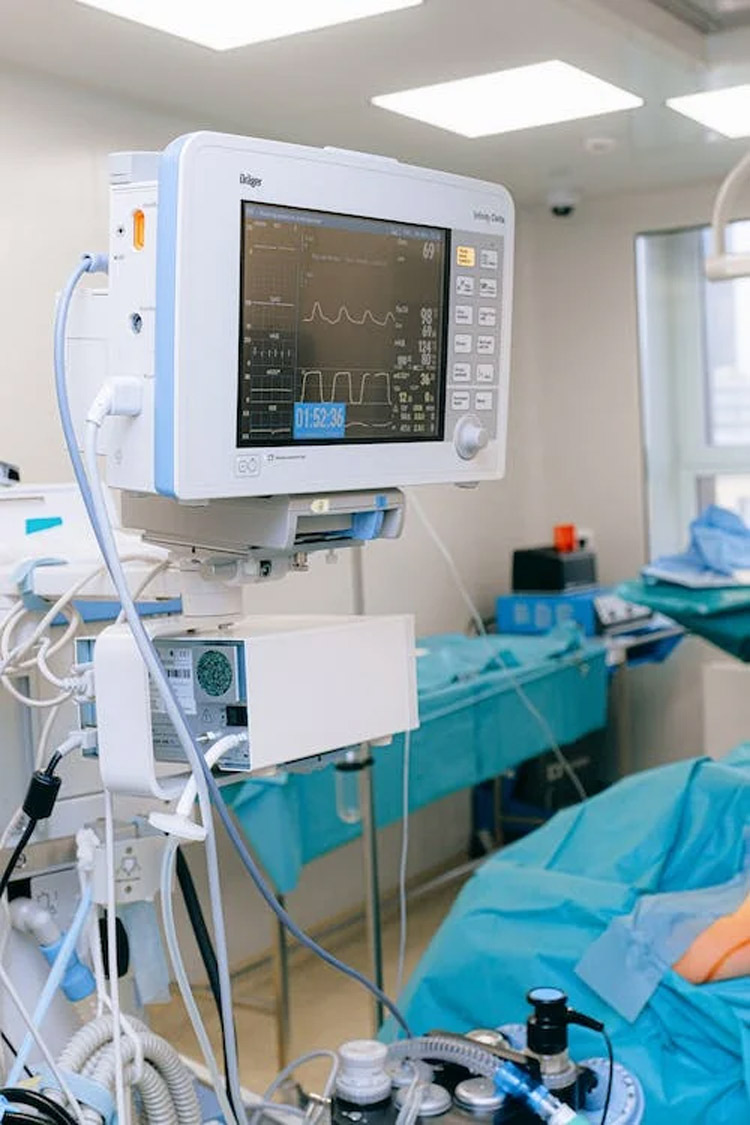
This post provides exhaustive information on the job description of a Pharmacy Technician, to help you learn the job they do.
What Does a Pharmacy Technician Do?
A pharmacy technician, also referred to as a pharmaceutical technician, is a health care worker whose job description involves performing pharmacy related duties and responsibilities.
He/she generally works under the supervision of a licensed pharmacist.
According to ONET OnLine, the pharmacy technician’s job entails following a pharmacist’s instructions in preparing medications.
Pharmacy technicians work in a different kind of locations, mostly in hospital and retail/community pharmacies, but sometimes also in pharmaceutical manufacturers, long-term care facilities, computer software companies, third-party insurance companies or in teaching or government establishments.
Their functions include distributing medical devices and prescription drugs to patients and instructions on how to use them.
They may also be required to perform administrative tasks in pharmaceutical stores. Such duties include reviewing prescription requests with insurance companies and doctor’s offices so as to be sure payment is received and correct medications are provided.
They may also speak directly with patients on the phone to assist in the awareness of taking medicines on time.
In several countries, both developing and the developed, the relative significance of pharmacy technicians within the pharmacy field has greatly increased in recent years, mostly in reaction to pharmacist shortages. This has also led to an increase in their roles and numbers.
Practical training like an internship in a pharmacy, is most times a prerequisite as part of training for anyone seeking employment as a pharmacy technician.
Some employers do favor pharmacy technicians to be certified with a local or national pharmacy board, like paying a fee or passing a standard examination.
Voluntary certification is available via many private organizations in countries like the United States.
However, in countries likes United Kingdom and Tanzania, pharmacy technicians need to be registered with the national regulatory council.
Pharmacy Technician Job Description Example/Sample/Template
The job description example below shows vital tasks, duties and responsibilities a pharmacy technician would be expected to perform for the organization they work for:
- Maintain pharmacy inventory
- Check pharmaceutical stock to determine the level of pharmacy inventory
- Anticipate needed supplies and medications
- Place and expedite orders
- Verify receipt
- Remove outdated drugs
- Prepare labels; calculate quantities; and assemble intravenous solutions
- Maintain records by filing and recording physicians’ prescriptions and orders
- Generate revenues by issuing, calculating recording charges
- Ensure medicine is available by delivering medications to departments and patients
- Prepare reports by summarizing and collecting information
- Contribute to team effort by aiming at achieve results as necessary
- Help maintain and clean work areas and equipment
- Sterilize glassware in accordance with prescribed methods
- Create and keep patient profiles with lists of medications taken by each patients
- Transfer medication from vials to disposable syringes with proper number of sterile, by using aseptic techniques
- Add measured nutrients and drugs to intravenous solutions under sterile conditions
- Prepare intravenous (IV) packs with the pharmacist supervision
- Monitor supply robotic machines that supply medicine into containers, and label such containers accordingly
- Process and prepare medical insurance claim records and forms
- Mix pharmaceutical preparations in accordance to written prescriptions
- Operate pharmacy cash registers and also accept payment from customers
- Compute charges for equipment and medication dispensed to hospital patients, and enter their data in computer
- Deliver pharmaceutical supplies and medications to surgery, patients and nursing stations
- Mark items for sale and price stock.
Pharmacy Technician Job Description for Resume
A pharmacy technician resume can be produced using information from the sample job description above.
Here are sample resumes for the position that can serve as templates in making your resume: #1: Pharmacy Technician Resume Example.
#2: Pharmacy Technician Resume Example
Pharmacy Technician Requirements: Knowledge, Skills, and Abilities for Career Success
Here is a list of vital skills, knowledge, and abilities a pharmacy technician is required to possess to be effective on the job:
- Work varied hours as many pharmacies open all day, and throughout the week
- Ability to routinely lift 50 pounds
- Ability to lift loads over the head
- Good knowledge of Supply Management principles
- Must have Integrity and well organized
- Possess strong reporting Skills, and the ability to give attention to detail
- Ability to analyze reports effectively and provide dependable information.
Pharmacy Technician Employment
According to report by the U.S. Bureau of Labor Statistics, 460,280 pharmacy technicians were employed in 2023.
Health and personal care retailers (237,010 employments) and general medical and surgical hospitals (71,640 employments) were among the highest employing industries for pharmacy technicians.
The states that employed pharmacy technicians the most include:
- California, 41,420
- Texas, 38,960
- Florida, 37,980
- New York, 23,320
- Illinois, 22,950.
Pharmacy Technician Salary
According to the U.S. Bureau of Labor Statistics record for May, 2023, the mean annual salary for pharmacy technician is $43,330.
The highest paying industries for pharmacy technicians are outpatient care centers; scientific research and development services; federal, state, and local government, excluding state and local government schools and hospitals and the U.S. Postal Service (OEWS Designation); psychiatric and substance abuse hospitals; and local government, excluding schools and hospitals (OEWS Designation).
Also, states that pay the highest salaries to pharmacy technicians include:
- California, $55,710
- Washington, $55,390
- District of Columbia, $54,030
- Oregon, $50,440
- Alaska, $49,810.
Pharmacy Technician Career Advancement
Pharmacy technicians can develop themselves and advance their careers to higher job positions that come with higher salaries and opportunity to make greater impact in their professions.
A pharmacy technician can progress to the following job positions with some specific training and work experience:
- Nuclear medicine technologist
Nuclear medicine technologists are responsible for preparing and administering radioactive drugs to patients for use in treatment or imaging.
- Pharmacist
Pharmacists are responsible for dispensing prescription medications to patients, as well as provide counsel to patients and members of the public on how to safely use prescriptions. Learn more on what pharmacists do.
- Pharmaceutical sales representative
Pharmaceutical sales representatives are responsible to promotion and sales of their company’s products to clinicians, physicians, and other appropriate professionals in the health sector. Learn more on what pharmaceutical sales representatives do.
- Registered Nurse
The registered nurse duties involve providing support, advice, and education to patients and their families, and members of the public on various health issues. Learn more about what registered nurses do.
- Medical laboratory technician
The medical laboratory technician’s duties involves carrying out specific diagnostic tests on bodily fluid and tissue samples in a bid to help physicians and other medical professionals figure out the cause of certain health condition.
- Regulatory affairs specialist
Regulatory affairs specialists are responsible for ensuring their companies get their products, including medical devices, drugs, nutritional products, etc. approved by the relevant government agency, and ensure that the approval is maintained. See more on what the regulatory affairs specialist do.
Challenges Faced by Pharmacy Technicians on the Job
A pharmacy technician will face certain challenges on the job, which they have to bring themselves to overcoming to be effective in their pharmacy and succeed in their career.
These challenges are majorly having thorough knowledge of pharmaceutical products and their storage conditions, and management of inventory in the pharmacy.
- Pharmaceutical Product Knowledge
As a pharmacy technician, you are expected to have deep knowledge of drugs, especially the ones ordered and dispensed at your pharmacy.
This will ensure that customers get the right drug for a particular prescription and in the correct dosage.
Any mistake in ordering the wrong drug to fill a customer’s prescription can lead to serious trouble with the government regulatory agency, including license forfeiture for the pharmacy concerned.
Pharmacy technicians must continually update their knowledge of drugs and their application.
- Drug Storage Conditions
Pharmacy technicians must know what the storage condition of various drugs are and ensure they are adhered to.
Manufacturers of drugs usually state the temperature, humidity, and other environmental conditions under which drugs should be stored, which pharmacy technicians should be aware of and ensure they are stored accordingly to prevent drugs from being ineffective.
- Pharmacy Inventory Management
Pharmacy technicians must be on top of inventory management at the pharmacy.
They must perform regular and accurate inventory counts, also called cycle counts, which are important tasks to be done in most pharmacies to avoid ordering drugs that are not needed.
Pharmacy technicians must also be able to effectively perform the drug return process by being able to find and sort controlled substances and pack them carefully for shipment to the drug returns company.
Another important inventory related skills a pharmacy technician should have is the ability to quickly track and remove any drug that have been recalled by manufacturers from their pharmacy shelves.
This will ensure that the pharmacy is stocked with only safe and effective drugs, which gives confidence to customers that they will be getting the right medications from the pharmacy.
Pharmacy Technician Job Satisfaction
Pharmacy technicians are satisfied with their job, revealed in a study by Shane P. Desselle and Erin R. Holmes of the Applied Pharmacy Solutions, Touro University California College of Pharmacy, and University of Mississippi School of Pharmacy.
516 certified pharmacy technicians participated in the survey. They were mostly female of over 40 years old with more than 11 years of pharmacy technician work experience.
The respondents were mostly happy with their work with pharmacists and their work schedule even though not quite satisfied with pay and career advancement.
They did not feel much stress on the job, except for when other employees are not doing their job and when their facility is understaffed.
The respondents expressed high levels of commitment to their pharmacy technician careers and most of them plan to be in the profession for 10 years or more.
Steps to Becoming a Pharmacy Technician
If you want to know how you can become a pharmacy technician, then here are the steps you can take:
- High School Diploma
You can become a pharmacy technician with a high school diploma or its equivalent educational qualification and learn on the job working in a pharmacy.
- Post-Secondary Education
You can also become a pharmacy technician by completing a post-secondary education such as pharmacy technology in a community college or vocational school.
You will obtain a certificate after a year or less or an Associate degree for longer period of schooling.
The pharmacy technology program covers areas such as recordkeeping, arithmetic applied in pharmacies, drug dispensing methods, and pharmacy law and ethics.
Other areas covered by the program include uses, names, and doses of drugs, as well as opportunity for clinical experience, where students are assigned to work in a pharmacy to gain practical experience.
- Certification
For the fact that most states regulate the practice of pharmacy technicians in one way or another, it is important for pharmacy technicians to obtain certification to make it easier for them to get a job.
They can obtain their certification from one of the two bodies that offer certification, which are the Pharmacy Technician Certification Board (PTCB) and the National Healthcareer Association (NHA). Pharmacy technicians are expected to renew their certification every two years.
Conclusion
This post is useful to individuals seeking the pharmacy technician career; they can learn all the need to know about what pharmacy technicians do, how to become one, as well as the higher job positions they can progress to later in their careers.
It is also helpful to employers/recruiters in making detailed and effective job description for the pharmacy technician role in their organization.
References:
U.S. Bureau of Labor Statistics
O*NET OnLine












